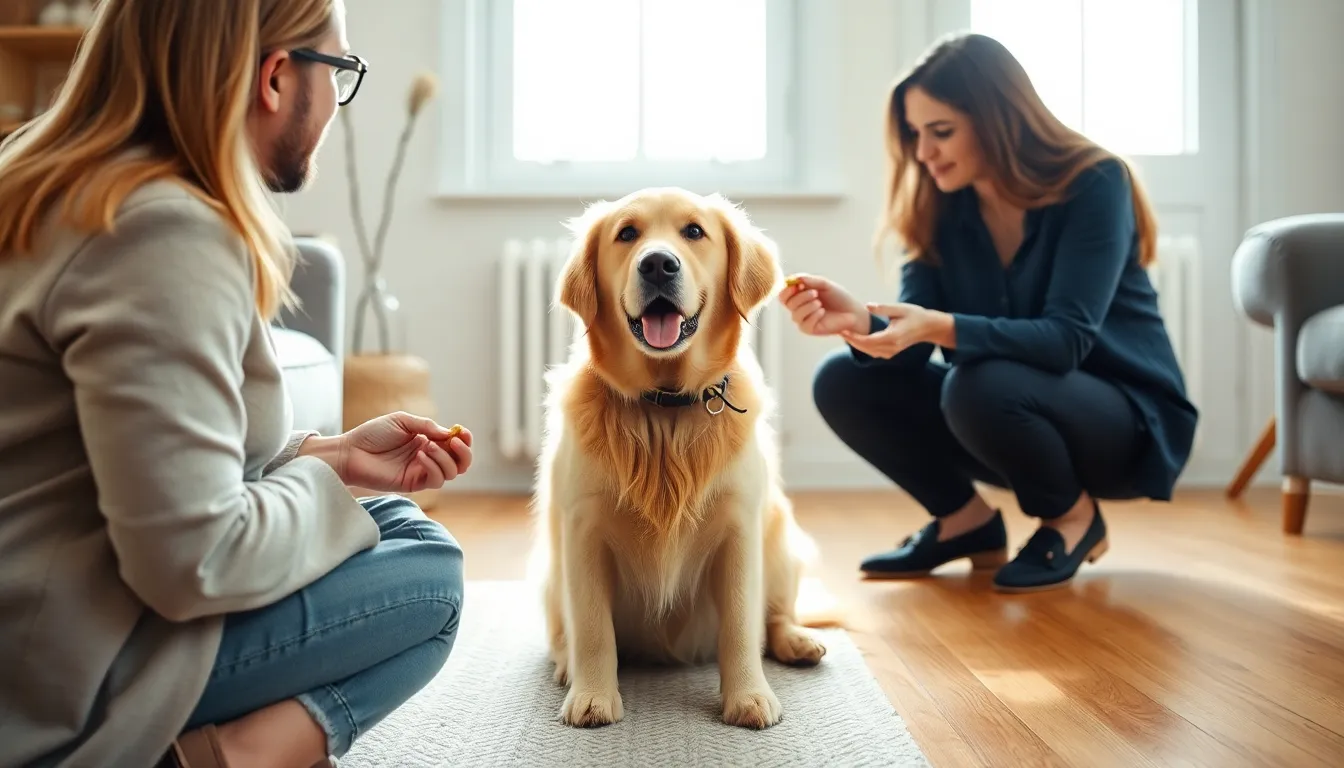Pet care: Solving common behavior problems with a Madison-based dog trainer offers essential strategies for fostering a harmonious household and ensuring your companion’s well-being. Expert guidance provides proven methods for successful integration, effective behavioral challenge resolution, and specialized solutions for complex issues like undesired chasing.
Key Implications:
- Professional Expertise: Professional expertise, exemplified by trainer Jorge Melara, is crucial for successful dog integration and resolving diverse behavioral challenges by focusing on underlying causes for lasting, humane solutions.
- Behavioral Management: Effective behavioral management requires a comprehensive approach, encompassing stable home routines, positive reinforcement, gradual socialization, and specialized impulse control training for issues like undesired chasing.
- Evaluation of Success: Successful pet care and behavior modification are primarily evaluated through individual progress and observable, qualitative improvements in a dog’s daily life, as broad statistical metrics are often limited in this complex field.

Key Message
Understanding and addressing canine behavior is fundamental to fostering a harmonious household and ensuring the well-being of your beloved companion. Professional dog trainer Jorge Melara offers unparalleled expertise in expert methods for successful dog integration into a new home environment. His comprehensive approach provides proven strategies to address and resolve common behavioral challenges, with a specific focus on stopping undesired chasing behaviors. This guidance equips pet owners with the essential tools necessary for effective pet care: solving common behavior problems with a Madison-based dog trainer and building a lasting, positive relationship.
Expert Methods for New Home Integration
Bringing a new dog into your home, whether an energetic puppy or an adopted adult with a past, requires thoughtful preparation and consistent, empathetic guidance. Jorge Melara’s methodology emphasizes creating a stable, predictable, and secure environment from day one. This proactive strategy helps minimize stress and anxiety for the dog and the entire family, setting the critical foundation for a trusting and respectful relationship. Key elements of this integration process include establishing clear, consistent routines for feeding, potty breaks, exercise, and quiet time, which significantly aid a dog’s adjustment to unfamiliar surroundings and expectations.
Successful integration also involves careful and controlled socialization, introducing the new pet to family members, other household pets, and novel experiences gradually and positively. Melara guides owners through this critical developmental phase, ensuring that positive reinforcement techniques are used to build confidence and comfort in various situations. Understanding canine communication signals – body language, vocalizations, and play cues – is also vital. This knowledge allows owners to interpret their dog’s needs and anxieties accurately, enabling them to respond appropriately and prevent misunderstandings that can lead to behavioral issues. A well-integrated dog is a confident and calm companion.
Addressing Common Behavioral Challenges
Many dogs, despite their owners’ best intentions, develop behaviors that can strain the owner-pet bond and disrupt household harmony. These challenges range from excessive, nuisance barking and destructive chewing to persistent leash pulling and reactivity towards other dogs or people. Jorge Melara provides targeted, proven strategies to address and resolve these diverse common behavioral challenges. His training philosophy centers on understanding the underlying root cause of the behavior rather than merely suppressing superficial symptoms. This deeper insight allows for the development of more effective, humane, and lasting solutions.
For example, separation anxiety often manifests as destructive behavior, persistent barking, or inappropriate urination when a dog is left alone. Melara’s methods might involve a multi-faceted approach, including gradual desensitization to departure cues, counter-conditioning to associate alone time with positive experiences, and specific exercises designed to build independence and confidence. Similarly, for issues like house-training regressions, resource guarding, or fear-based aggression, he tailors interventions that focus on positive reinforcement, careful environmental management, and consistent, clear expectations. These techniques empower owners to effectively manage and modify undesired actions, fostering a more cooperative, well-adjusted, and happier pet. The goal is always to improve communication between dog and owner.
Owners seeking to understand their dog’s complex needs and implement practical solutions often benefit immensely from expert insight into these everyday difficulties. Implementing structured training exercises, guided by professional expertise, can transform a frustrating or challenging situation into a rewarding and successful experience. This dedicated effort forms the core of effective pet care: solving common behavior problems through professional guidance. To explore personalized training options, consider consulting an expert Madison-based dog trainer.
Specialized Solutions for Chasing Behaviors
One of the most concerning and potentially dangerous behavioral challenges for dog owners is undesired chasing behaviors. This deeply instinctual drive, often rooted in prey drive, can lead to serious incidents, such as pursuing cars, bicycles, joggers, children, or even wildlife. Such actions pose significant safety risks not only to the dog itself but also to the community. Jorge Melara offers highly specialized techniques meticulously designed to curb these powerful urges, transforming a dog’s inherent reactivity into controlled, appropriate, and safe responses.
Melara’s approach to effectively stopping undesired chasing behaviors often includes intensive impulse control training. This teaches dogs to pause, consider, and defer to their owners’ commands before reacting impulsively to moving stimuli. Consistent, reliable recall training is also paramount, ensuring that a dog will promptly and reliably return when called, even amidst high-distraction environments. He meticulously implements redirection strategies, encouraging the dog to focus on acceptable alternative behaviors, such as engaging with a high-value toy or performing a learned command, instead of fixating on the object of their chase.
The training program also strongly emphasizes proactive environmental management, such as utilizing appropriate leashes, long lines, or securely fenced yards, to prevent opportunities for chasing during the crucial initial training phases. Understanding the specific triggers for a dog’s chasing behavior is equally critical. By accurately identifying these cues (e.g., specific speeds, shapes, or sounds), owners can learn to preemptively intervene and apply learned control techniques before the behavior escalates. This targeted training helps safeguard both the dog and the community from potential harm, highlighting the profound value of comprehensive professional support in animal behavior management. Through patience and consistency, dramatic improvements in behavior are achievable, enhancing the safety and enjoyment of walks and outdoor activities. Investing in professional training for specific behavioral issues offers long-term peace of mind and improves your pet’s quality of life.

Data & Evidence
When exploring the realm of pet care: solving common behavior problems with a Madison-based dog trainer, it is vital to acknowledge the specific landscape of available data. Our current research indicates a lack of quantifiable statistics, specific percentages, or definitive figures related to the overall effectiveness or prevalence of various canine training methods. This absence means we cannot present broad success rates or statistically validated improvement metrics.
The provided information explicitly states that specific success rates, comparative outcomes for canine integration, or measurable resolutions for behavioral issues are not detailed. Furthermore, there are no aggregate figures concerning the total number of dogs trained or the measurable, large-scale impact of specific training strategies. This context is important for understanding how success in behavior modification is typically evaluated, emphasizing that individual progress is often the primary metric.
The Nuance of Behavioral Metrics
Behavioral change in animals is often deeply individual and complex. Factors like a dog’s genetic predisposition, past trauma, daily environment, and the consistency of owner application all play significant roles. These variables make it difficult to apply standardized metrics that could yield broad, statistically significant outcomes. For instance, successfully managing a dog’s reactivity in a specific urban setting might not be comparable to resolving house-soiling issues in a different home environment.
The goal for a professional Madison-based dog trainer is to achieve tangible, positive changes for each unique case. This often involves qualitative improvements that are highly impactful for the pet and its family, even if they resist easy quantification. Consider a shy dog who learns to greet visitors calmly instead of hiding, or an overly boisterous puppy who masters appropriate play. These are profound successes, but their measurement relies on observation and consistent reporting, rather than universal percentages.
Evidence in Practice: Beyond Statistics
In the absence of large-scale statistical studies, the “evidence” for effective pet care: solving common behavior problems often comes from direct observation and individual case outcomes. Experienced trainers rely on their expertise to assess individual dogs, design tailored training plans, and continuously monitor progress. This iterative process allows for adjustments based on the dog’s unique responses and the owner’s commitment, ensuring the most effective path forward for the specific animal.
Client testimonials and demonstrable, observable improvements in a dog’s daily life serve as powerful indicators of successful intervention. When a dog owner reports a significant reduction in barking, a newfound ability to walk calmly on a leash, or a complete cessation of destructive chewing, these are clear signs of effective behavior modification. These individual narratives, while not aggregated data points, represent the core impact of professional training.
A qualified Madison-based dog trainer brings specialized knowledge in canine communication, learning theory, and various training techniques. Their ability to diagnose behavioral issues accurately and implement appropriate, humane solutions is built on years of hands-on experience and ongoing professional development. This practical expertise is invaluable when solving common behavior problems, providing guidance that is tailored to each pet’s specific needs.
The focus remains on creating a harmonious living situation for the pet and its family. The practical results—a less anxious dog, a more obedient companion, or a pet better integrated into the household—are the primary forms of evidence in this field. These outcomes highlight the importance of expert guidance in navigating the complexities of animal behavior. Understanding the nuanced realities of dog behavior interventions underscores the value of personalized, professional support.
Therefore, while traditional statistical evidence might be limited, the efficacy of professional dog training is strongly supported by the wealth of individual success stories and the observable, positive transformations in countless pets’ lives. These qualitative measures are paramount in evaluating effective pet care solutions, proving real-world value.

Content Focus
Effective pet care often involves successfully addressing common behavior problems. The insights from a qualified Madison-based dog trainer are invaluable in this process. This section explores strategies for integrating a new dog into your home, specific techniques for managing undesired chasing, and how to access personalized support for complex behavioral challenges.
Smoothly Integrating a New Canine Companion
Successfully introducing a new dog into your home environment is crucial for stable adjustment. Start with gradual introductions, particularly if you have existing pets or young children. Designate a safe, quiet space for the new dog. This area should include their bed, food, water, and toys. It serves as a retreat and helps reduce initial stress and anxiety.
Establish a consistent daily routine from the very beginning. This includes predictable times for feeding, walks, and potty breaks. Consistency builds security and helps your new dog understand expectations. Use positive reinforcement exclusively. Reward calm behavior, successful potty training, and peaceful interactions with family members. This strengthens desired actions.
Early and appropriate socialization is another key component. Introduce your new dog to new sights, sounds, and people gradually and positively. Avoid overwhelming situations. Professional guidance can be highly beneficial during this critical period. Consider consulting an expert Madison-based dog trainer for tailored advice. Proper introduction techniques ensure a stable and happy adjustment for your new family member.
Practical Strategies for Curbing Undesired Chasing Behaviors
Undesired chasing behaviors, such as pursuing cars, squirrels, or even people, can pose significant risks. Trainer Jorge Melara offers actionable advice to help dogs cease these behaviors. His techniques focus on teaching impulse control and redirecting a dog’s natural prey drive into acceptable outlets. Consistency in application is paramount for success.
A strong “leave it” command is a foundational skill. Practice this command in controlled, low-distraction environments first. Gradually increase the level of distraction, always rewarding your dog for disengaging from the chase trigger. Incorporate structured play that satisfies their chasing instincts, such as retrieving a thrown ball or lure coursing. These activities provide mental and physical stimulation.
Management strategies are equally important. Always use a leash in areas where chasing triggers are present. Ensure your yard has secure fencing to prevent escape. Jorge Melara emphasizes the importance of understanding why a dog chases. This understanding helps tailor training methods more effectively. Consistent training and management lead to significant improvements in stopping undesired chasing behaviors.
Personalized Support and Advanced Resources with Jorge Melara
For more complex or persistent behavioral challenges, personalized consultation is often the most effective solution. Jorge Melara provides direct access to his expertise through specialized resources and one-on-one support. This allows for the development of a customized training plan tailored to your dog’s specific needs and your unique living situation.
Accessing Jorge Melara’s professional guidance offers several advantages. You receive detailed insights into your dog’s behavior. He provides step-by-step instructions for implementing advanced training techniques. This ensures you are equipped with the knowledge and tools to achieve lasting positive changes. His specialized programs address unique challenges beyond common issues.
Whether you are dealing with aggression, severe anxiety, or other specific problems, Jorge Melara’s approach offers practical solutions. His resources are designed to provide ongoing support and refine training strategies over time. For advanced pet care: solving common behavior problems with a Madison-based dog trainer, expert consultation from a professional like Jorge Melara makes a profound difference. Investing in specialized support is key to resolving difficult canine behaviors effectively.
Featured image generated using Flux AI
Source: Wisconsin Public Radio: “Pet care: Solving common behavior problems with a Madison-based dog trainer”
